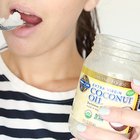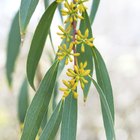Krill oil is extracted from Krill, tiny, translucent crustaceans closely resembling shrimp. They are only 1 to 6 cm long, and great masses of them live in the ocean and feed on phytoplankton. They are a regular food source for whales, seals, dolphins, penguins and other fish. The oil is one of the best sources of omega-3 fatty acids, surpassing even fish oil. There are many benefits to krill oil, including healthier hair, skin and nails.
Geography
Commercial krill fishing takes place mostly in the Southern Ocean, which covers the southern hemisphere and surrounds Antarctica. Additionally, Krill are fished in the Northern Pacific Ocean, in the waters off Japan and Canada. Because these waters are so rich in nutrients and are mainly uncontaminated, Krill oil does not contain the high levels of mercury and PCBs that fish oil and many types of fish contain.
Features
Krill oil contains the powerful Omega-3 fatty acids, EPA and DHA. These are the Omega-3s commonly found in fish such as salmon and tuna. Additionally, Krill oil contains an antioxidant called Astaxanthin, which has been shown to be 10 times more powerful than carotene. The Omega-3s in Krill oil are carried as phospholipids which are more easily absorbed by the body. In addition, they are absorbed in the small intestine as opposed to the stomach, so there is no fishy aftertaste.
Benefits
In addition to heart health, lower cholesterol, cellular health and other major health benefits, Krill oil is known to help keep hair healthy and shiny. Omega-3s are essential for healthy skin and nails, and in the case of hair, its benefits are many. The Omega-3s in Krill oil are effective in fighting dry scalp and keeping hair follicles strong. Additionally, because Omega-3s help with cell regrowth, they are very effective at fighting hair loss and damage. Most people report results in six to eight weeks when Krill oil is taken regularly.
Warning
Since Krill is a crustacean, Krill oil should not be taken by anyone with a shellfish allergy, since those effects have not been sufficiently tested. Also, it is recommended that people who are on blood thinners or who have bleeding disorders do not take Krill oil as it can intensify those symptoms. Of course, you should check with your physician before beginning any supplement program.
Availability
Currently there is only one company who manufactures Krill oil, and that is the Neptune Krill Oil Company. The soft-gel pills are marketed through several different distributors. It is widely available in health food and organic stores. Due to its increased popularity, some major supermarket and big-box stores have recently begun to carry it. Since all of the Krill oil available on the market comes from only one source, there is currently no difference between the various brand names available in stores.
Related Articles

Mineral Oil Vs. Olive Oil

The Benefits of Tuna & Omega-3 Oil

Can Borage Oil Help Acne?

Skin Benefits of Eating Coconut Oil

Seborrheic Dermatitis & Nutritional ...

Carrot Oil for Acne

L-Lysine for Hair Growth

A Low-Cholesterol Diet Plan Menu

Grapefruit Skin Benefits

A List of Foods That Contain Choline

Is it Healthier to Cook Salmon With Its ...

What Is Expeller Pressed Canola Oil?

How to Cook Shishamo Fish

Ingredients of Accutane

What Are the Benefits of Extrapone ...

Pycnogenol and Acne

Coconut Oil & Nail Fungus

Eucalyptus Oil & Acne

How to Reduce Acne Inflammation

Viviscal Ingredients
Writer Bio
Mame Dennis started her journalism career in 1989. She has worked as a writer, proofreader, photo editor, researcher and photo stylist for magazines such as "House Beautiful," "New Woman," "Hotel Bel-Air Magazine," "Launch Magazine" and more. Dennis has a Bachelor of Arts in English literature from Drew University.